
Publisher:
Bonnie King
CONTACT:
Newsroom@Salem-news.com
Advertising:
Adsales@Salem-news.com

~Truth~
~Justice~
~Peace~
TJP
Mar-17-2013 17:17

 TweetFollow @OregonNews
TweetFollow @OregonNews
The Forgotten Mentally Ill; A Remembrance
Dedicated to my Cherished Older Sister
Theresa Griffin-Kennedy Salem-News.com
Ms. Margaret Mary Elizabeth Tamar Griffin-Carver
Born: November 9th, 1957, Died: New Years Eve, 2006
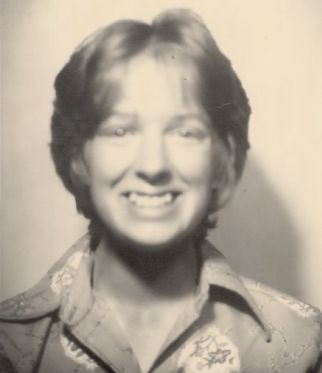 |
(PORTLAND, OR) - To say that our beloved sister Margaret was mentally ill is not an easy admission. It is also tragically the sad truth. She was one of thousands of mentally ill currently residing in the state of Oregon and suffering from schizophrenia among other personality disorders. She was also as I came to learn too late, one of thousands of mentally ill who do not seek and do not receive the proper medical care they need.
The result of this social problem, is that these people, many cherished by their families, often die from preventable diseases, just as she did, only to be bitterly mourned after death.
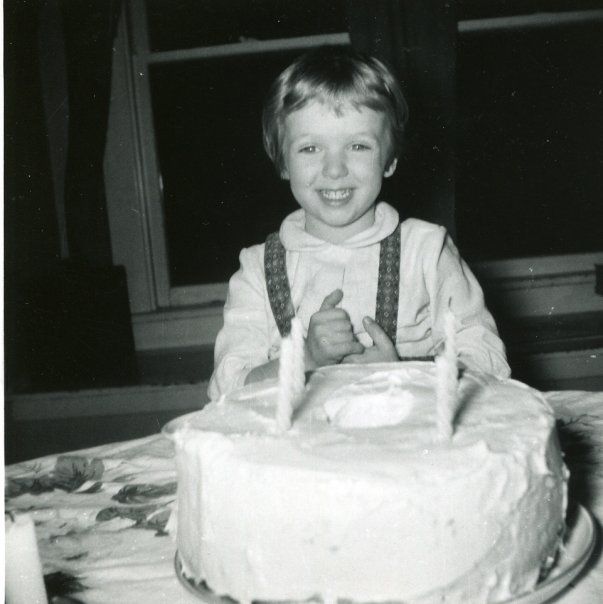 There is one of Maggie in front of her |
My sister Maggie was a lovely 'Irish Rose' with waist length, golden blond hair, large blue eyes and a roses and cream complexion. She came of age in Portland Oregon in the sixties and seventies and had dreams and ambitions like any girl. When she was very young and only a small child, she competed in a beauty contest. She played the flute and was an excellent student, who dreamed one day of becoming an oceanographer.
She attended college for several years, on and off and was voracious reader, letter writer and journal keeper, with exquisite penmanship.
She had a lively cheerfulness that was infectious and was always suggesting new ways she could help, with house work, with rearranging furniture, with creative sewing projects and bread recipes. No one could make Honey/Wheat bread, fresh from the oven like Maggie could.
 Maggie with her two brothers, in a crib. |
She was also incredibly sensitive. Her sensitivity was directly connected to her intelligence and it may have been this sensitivity tha lead to her mental illness. She was perceptive and inquisitive, with a questioning curiosity that never ceased and I always admired her as my eldest and for many years, my favorite sister.
She seemed in possession of a limitless optimism in her younger years and it was because of that optimism and the fact that she was my eldest and seemingly strongest sister, that I presumed she would live forever. I never thought of her as weak or fallible like other people or as someone who might one day fall victim to ill health. And I never, ever imagined that she would die at age 49 from a form of cancer that is today easily treated and easily cured through chemotherapy and hysterectomies.
Uterine cancer runs in my family, on my mother's side and has a peculiarly aggressive history in my family lineage. My maternal great grandmother died from uterine cancer in 1925, as well as several other relatives. We always knew that story, my four sisters and I; the story of our mother's grandmother and that she had died a painful death from uterine cancer. That she had been on morphine and had died young, at age 49, ironically the same age Maggie was when she finally succumbed.
The truest reason my sister died is that she never sought medical treatment. All her adult life, after her precious son Rudy was born, and then eventually taken from her when he was seven, due to her mental illness, she never sought medical treatment for any illnesses. She never engaged in preventative measures, normally taken for granted by most women. Preventative measures, such as regular pap smears, pelvic exams, blood work and the like. She was mentally ill, shunned medical care and consequently died far too young.
THE SECRET REVEALED
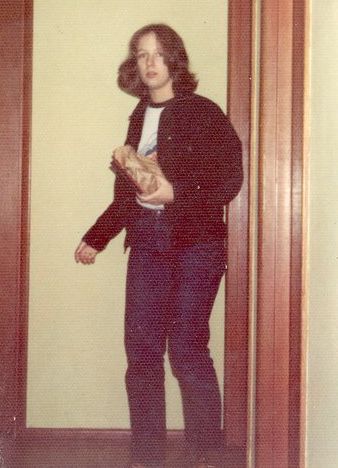 |
But why would someone do that? Simple paranoia perhaps? A fear of doctors offices or of needles? Or could it be something even more sinister and complex? Could it be that my sister feared doctors for the simple reason that she herself had been betrayed by one? Sadly, that is the reason my sister would not see a doctor to maintain her health or prevent the potential for future disease. She feared and hated doctors and when one considers what happened to her, it is understandable how she might come to such an unreasonable and illogical conclusion.
When she had been a teen in the early 1970's, she had been depressed and confused, like many teens in that era. She was directed to see a local therapist, a prominent Portland psychologist, (also a board member of the Morrison Center) and family friend, Dr. Julian Taplin. Sadly, instead of this particular doctor giving her the guidance and treatment she needed, as an under-aged, depressed teen, he seduced her sexually and ultimately contributed to the destruction of a once beautiful life!
I learned of this as a child of no more than 10, when she confided to me that she had indeed been taken advantage of and in a sexual manner by this particular doctor. She told me she said, so that I would know, "not to trust him" so that I would not become another victim of his.
This disclosure transpired years before she developed the mental illness that would consume her. I had no reason to disbelieve her, she was reasonable and sane and completely truthful and had never given me cause to doubt her. She had told me the story quietly, in a subdued tone and I listened sympathetically but could not offer her one word of consolation of advice. I was only a child and all I could do was watch her face as she spoke to me, with wide confused eyes, feeling my heart becoming very heavy. All I could give her was the concerned presence I felt she needed. Being a child, I could offer her no words to make it better, though I wished I could. I didn't understand what sex was. It was a concept rather than reality, gleaned from experience. I struggled to understand the implications of what she told me and what it meant, but it was difficult. It was a story and a truth however, that would haunt me for years to come and I would never forget her rare moment of candid disclosure or the sad resigned manner in which she told me what he had done to her and that I should never trust him.
CONFIRMATION FROM FAMILY
 Julian Taplin poses with students at the school he and a Hong Kong |
I spoke with relatives several years later, who confirmed what had happened. As I had always observed this man's odd behavior, for years in fact, it did not surprise me when I learned the truth of what he had done to my sister. It only heightened my unparalleled hatred for him and intensified my sorrow and frustration, that we, as a lower income family, would probably never get any measure of justice for such a despicable and criminal violation.
I often recall the subtle and lecherous manner in which this doctor would leer at my four pretty sisters and I when he visited our home. His beautiful blond trophy wife sometimes accompanied him, a woman with whom he was constantly unfaithful, according to our mother. They would all gossip and enjoy expensive teas and English cookies purchased in tins. While watching them, it often occurred to me, they looked exactly like little children having a tea party, what with how they carried on, excited and sometimes just a little ridiculous.
The doctor and his wife would grace my awestruck mother with their socially prominent presence, and while his wife seemed genuinely decent, kindly and sincere, the doctor always struck me as the worst kind of pompous elitist. Arrogant and presumptuous, with a tedious air of entitlement, that made me nauseous just to look at him, or listen to his droning, pontificating voice.
The fact that our spunky dog, a cockapoo mutt named Herbie, virtually detested him and would have to be restrained whenever he came over, also told us, the children, that there was something inherently wrong with him. Herbie had never hated someone with such vehemence. He would bark non-stop and would try to attack Julian, lunging and trying to bite him. For years it was a constant source of mystery and amusement for us, as we would have to put Herbie in the backyard or in the basement when the doctor came over to visit. He despised Dr. Julian Taplin and no amount of time or patronizing beseeching on the Dr's part could alter that reality.
It saddened us that our mother was so deceived by Julian. We told her repeatedly that he was no good, that there had to be a legitimate reason why Herbie hated him so much, but she was socially isolated and in need of friends. She and my father divorced when I was six, and our mother was lonely and in need of support, and as a result our concerns were met with deaf ears. With regard to the secret admission Maggie had shared with me, as a 10-year-old, there were no words that could have formed in my mouth, to attempt to describe the violation that Maggie has suffered at the doctors hands. I knew of no way, in which to broach the subject of her accusation and so for years, I remained silent and never told my mother or father what I knew. That conversation would take place decades later.
Julian's father, elderly at that time, was from England and still had a heavy English accent. Because of this, Julian, who did not have an English accent, acted as if he was some kind of English royalty and not the common, everyday man that he was. His arrogance was tedious and transparent, existing, I always thought, to compensate for the fact that he was short, slightly built, exceedingly thin and had really bad teeth.
He and his wife were both on the board of the Morrison Center, as was our mother. Ironically, the Morrison Center was an organization that provided counseling to sexually abused children and as a result they maintained a friendship for several years and generally saw each other at least once a month. The doctor always had an attitude of pretentious concern and interest, it seemed to me, when addressing my mother. Yet often, when she was not looking, he would have expressions of such contempt on his face as he beheld my pretty sisters and me. It was a combination of repugnant disgust, along with a keenly felt desire, intermingled into a sickening poison as it emanated from his small piggish and thoroughly deceitful eyes. As if in some inexplicable way, we were expendable, unimportant and not worthy, like his children; a boy and a girl, Greggie and Susie, both of whom had platinum ash-blond hair and gray-blue eyes, and were quite cherished by he and his wife.
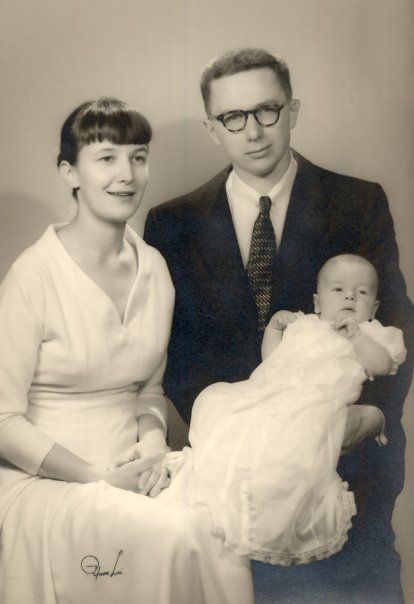 |
Because my mother had naively confided to Julian, many intimate and probably unflattering details about our somewhat dysfunctional Irish-American family, and her relationship with our father, after their divorce, I always felt on an intuitive level, that it was because we were low income, Irish and essentially fatherless that the Doctor felt an apparent lack of respect for us and a licentious freedom to sully what he desired. Perhaps that was why he felt no impulse control when he decided to destroy my sisters life with the sexual violation she would endure at his hands and never, ever recover from.
 Julian Taplin |
- Julian Taplin's blatant and consistent lack of respect for my father's five lovely daughters, seemed further proof to me, of his complete lack of character, intelligence, quality education or any other manner of social or ethical boundaries with regard to my beautiful sister Margaret and his criminal, amoral and sexual violation of her underage person!
Some would call this manner of violation rape. I am one of those people and that is indeed what happened to my sister. She was raped by a licensed practicing psychologist, Dr. Julian Taplin, who instead of helping her, showed her that indeed, she could trust no one! This was not just an isolated incident, as we came to find out, but had transpired over several weeks and perhaps even months. The fact that it happened even once was horrifying enough, but to think of it as a prolonged experience for my beautiful sister, brings even more heartache to my other sisters and me.
STATISTICS ON THE MENTALLY ILL
According to statistics collected during 1999, approximately 7,000 Oregonians die from cancer each year. Most of these deaths are due to lung cancer, but consistent portions are from uterine cancer as well. A large number of these deaths include the mentally ill and could be prevented with proper medical care. For the first time in 70 years, there has been an increasing death rates for women, which has exceeded those of men. Naturally, many of these women are the homeless and the mentally ill. For a variety of reasons they do not seek the proper medical care they need. With the passive and easily guided mentally ill, this is sometimes only an inconvenience, in terms of eventually directing them to proper care. For the stubbornly fearful, like my sister, it can become a nightmare reality and eventfully transcend into huge personal loss as symptoms go ignored and untreated and death is the final outcome.
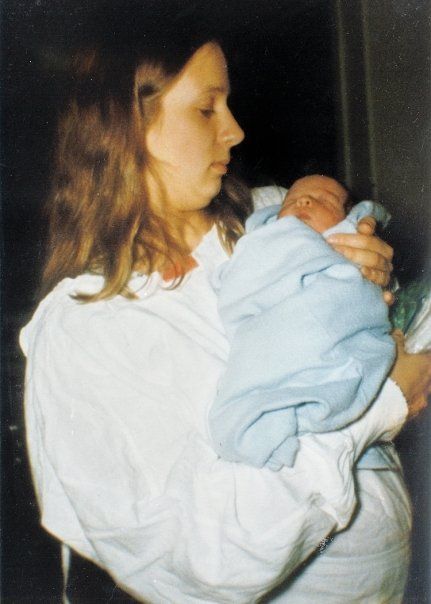 |
With respect to Maggie, we learned later, from her husband (with whom she had separated nearly ten years before) that she had fallen the day after Thanksgiving 2006, and had broken her leg. That is when it was discovered she had the cancer, later at the hospital. Unfortunately, by then it was too late and the cancer had spread to every organ in her body and penetrated her very bones. She was put into hospice by some very dedicated people and five weeks later, she was gone...without letting any of us know.
We had not seen her in over 20 years. After her mental illness had become unmanageable, and her son Rudy had been taken form her, she left the fold. She said goodbye to all people and places that had caused her pain, and began a new life, (after being homeless for a short time) in a small city outside of Portland. This new life was spent with a kindly man, who deserves much credit for virtually saving her life, and for caring for her, selflessly, for many years, even after they had separated.
We never knew she had been homeless in 1985 and only recently discovered that for several days she had no where to live. If she had come to us, we would have helped her without hesitation. But she never contacted us and we never knew of her homelessness. She and her husband eventually married and bought a house together, where she was the envy of the neighborhood with the gorgeous garden she created and maintained for those many quiet years. A garden full of rose, tulips and flowers of every kind, providing vibrant color and visual beauty.
But for all that time, she never agreed to see a doctor, for any reason and I often wonder what her life would have been like, if indeed, the licensed, practicing psychologist Dr. Julian Taplin had actually done his job and given her the care and direction she needed, instead of succumbing to lust and the predatory instincts that were such a part of his debased and degenerate character. Would her life have turned out differently? I know beyond the shadow of any doubt, that in fact it would have! I remember my sister when she was a depressed teen. She was looking for some kind of answer. She was exceedingly religious, attending church often and was a hard worker, always helping with chores. She was studious, dedicated and forever searching for answers and guidance. She would have responded to good psychological care, from a qualified professional and I have no doubt it would have altered her life significantly and in a positive manner. But that is not what happened, and as a result I am penning this story, as a warning to those of us and we are many, who have mentally ill in their families. It is so important to make certain our loved ones receive the proper medical care they need. For any kind of ailment, be it a stubbed toe that may turn gangrenous or chest pains due to high cholesterol or other more curious symptoms that might indicate reproductive abnormalities, such as prolonged and severe bleeding.
Those who can must be responsible and take action and hopefully in some families, that is what can happen. In our family, my sister maintained a hostile distance from us; she stubbornly refused preventative measures and would not seek treatment even after she had begun to experience severe symptoms of uterine cancer. Even when her husband beseeched her to get treatment, she would not.
We grieve not only because she died without her family beside her, in hospice, dying alone, but we also grieve for her brief, often chaotic life. We grieve for the innocence that was stolen from her, that very probably perverted her sense of trust, to such a degree, that she was forever damaged and it is this betrayal that we grieve most of all. It is this betrayal that will, in all likelihood remain unpunished, at least in this lifetime.
Before my sister became mentally ill, before she lost her innocence, she had a delightful sense of humor. It is her bubbly sense of fun that I will miss the most. Her sense of devilish, giddy humor that made family social occasions even more enjoyable. Being without her those long 20 years was hard. Losing a relative like that injects a melancholy within the soul that is difficult to purge or gain mastery over. Triple that, now that we know of her death, essentially alone in hospice, without her family beside her. I did however send her cards and letters for over ten years regularly and I know she received every one. I am anything if not loyal. She told me once it was one of the things she liked best about me, my loyalty. Sometimes I sent her small amounts of money. She never responded but the letters and cards were never sent back.
I know she knew we loved her and perhaps in some small corner of her psyche, that was a comfort. I often wondered during those years apart, if she was still able to maintain her sense of humor, if any vestiges of it remained, after all her losses. I do know this, if she had seen her three younger sisters February 8th, 2006, weeping to each other on their cell phones, after learning she had died in hospice six weeks earlier, turned over and prostrate with grief, crying,"Margaret died, she died!" in agonizing disbelief, she would have been pleased to know we loved her so. Knowing Margaret, she would have smiled, thinking it was funny.
The truth is, we were inconsolable, for the loss was shocking and agonizing to each of us. We always thought we would see her again and because Maggie was so strong, and independent in her adult life, we always rather presumed she would live forever. We could never have imagined she would die so young and so unnecessarily from a preventable disease, only because she, as a socially isolated mentally ill woman, had ignored symptoms and refused medical care.
THE DILEMMA OF PROVIDING CARE
The social problem of the mentally ill not receiving the basic health care they need only grows in number with each passing year that homelessness, affordable housing and the myriad needs of the mentally ill continue to be ignored. The power players and policy makers who call the shots about how state funding will be sliced and who benefits are the ones who must advocate for these at risk populations if we are to effect significant change of a positive nature. Individually, this is a difficult dilemma to create a solution for, because each case is unique and fraught with singular considerations.
There is currently no blanket band-aid cure for this issue, though it becomes more prevalent each year, it is mainly up to families and caregivers to insure that the mentally ill under their care receive proper medical care. Close to 18,000 Americans die each year because they lack adequate medical insurance and as a result proper medical care and a vast majority of those individuals are also the forgotten mentally ill who fall through the cracks. The forgotten mentally ill, like my sister Maggie. These lost souls wander aimlessly through life living and often being abused in shelters. They are not directed to the various services they are eligible for and consequently die far too young, because of a lack of care and proper medical treatment.
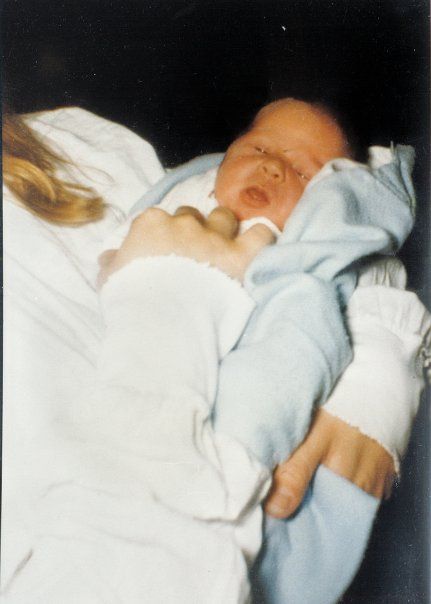 |
My sister was one of those lost souls and her death was something that could have been prevented. Tragically, my other sisters and I were just beginning to discuss the possibility of going out to visit her, for we did know her location, but we didn't want to upset or frighten her, so we demurred and put it off, year after irrevocable year. Sadly, we waited too long and as most know, time and tide wait for no man. We waited too long and time eventually ran out. What I hope for, as a direct result of sharing this story, is that other families are able to act before its too late and that others are able to protect their loved ones. Not only from a lack of proper medical care but also from predatory therapists, who in our case, destroyed all chance of Maggie being able to trust again and perverted a once innocent mind, full of the youthful glimmer of potential and future promise.
If there was ever a moment when I doubted the veracity of my sister's claim that Dr. Julian Taplin had committed felony sexual abuse against her person, as an underage teen, it was forever put to rest when I witnessed something revealing. It was an incident I witnessed, (seemingly insignificant at the time) and yet would prove itself extremely illuminating as to the possibility that the Doctor was in fact a sexual predator. Two bits of a puzzle came together for me and as a young teen, I learned how it feels to loath and despise another human being.
I had been fourteen years old and my sister Maggie, 22. She had given birth to her son Rudy, out of wedlock, when she was only 20. She lived in a tiny house in NE Portland and struggled as a low-income single mother. My younger sister Bronnie and I helped her when we could with babysitting and just by keeping her company, which we knew she enjoyed.
One summer evening in June or July 1980, Dr. Julian Taplin came to our home, (my mother's home) on 24th and Thurman street for an impromptu visit. He brought with him an old chair, something easily purchased from a flea market. He said it was a chair he had had at him home, and that he had gone to a great deal of trouble to sand it down and repaint it. I found that quite difficult to believe, considering its appearance. While it did look antique and old fashioned, clearly it was not a valuable chair and the paint job looked sloppy and haphazard. It looked as if it could have been purchased at a second hand store, or more probably a summer rummage sale. He sat in our kitchen, while my mother fussed over him, preparing him coffee, and proceeded to boast and brag about the fine job he had done repainting the chair, fondling and stroking it with his hands, while he spoke indulgently of his fine handiwork. He reminded me of some kind of ridiculous Peacock, prancing and preening, in order to get attention, praise and acceptance.
THE TELEPHONE WARNING TO MAGGIE
Dr. Julian Taplin on LinkedIn |
He seemed not only pathetic but also comical and for a few short moments I was almost brought into the jolly atmosphere of his joking, cajoling comments. He then told my mother of his plans to take the chair to my sister Margaret's house, along with some other odds and ends he thought she might be able to use. He mentioned this to her with an easy casualness, as if they had spoken to her about it earlier and she voiced her innocent consent, agreeing that yes indeed, Maggie could use all the help she could get. I was instantly alerted and concerned for Maggie, knowing that this man would be coming to her home shortly. I disappeared from the room and called my sister from the In-house telephone in the living room. I warned her that the Doctor would be coming over to her house, sometime that afternoon or evening. She then asked if I could spend the following day with her, and I readily accepted.
She said goodbye and thanked me for the heads up warning. I excused myself shortly thereafter, without acknowledging the doctor, going up to my room. As I heard him preparing to leave less than an hour later, I watched him from my North facing bedroom window, overlooking NW Thurman Street. He brought the chair back down to his car, saying goodbye to my mother on the concrete steps in front of the house. He had gone to the trouble of bringing the chair all the way into the kitchen, just to show us his fine handiwork and then had to bring it back down again. It seemed an odd gesture of unnecessary and boastful self aggrandizement.
I watched him with utter hatred through the fine white muslin curtains Maggie had made for my bedroom windows some time earlier, and as he got into his car, parked out front, he looked up at the window and saw me. I didn't move away from the curtain but only looked at him with a cold, silent evenness, with my chin raised slightly, confident in my hatred for this human vermin. He looked at me with an arrogant smirk and got into his car, happily going on his way.
The next day, when I went to Maggie's home, in the late morning, I hesitantly asked about what the doctor had wanted. I waited though, until we had had tea from her fine Desert Rose china cups and had eaten small cream cookies. I waited until we had talked about how smart and clever Rudy was, about how healthy he was, so pretty with his white-blond hair and gorgeous ice blue eyes and how he was developing and learning to talk so well. He played contentedly in the back yard, on a blanket with small match box cars and we watched him happily, from the kitchen door, feeling the perfection of that moment would never end. We were completely content with one another and the sun could not have been more perfect in its warm embrace. Still the question burned in my mind.
 Another image of Julian Taplin in China |
What had Doctor Julian Taplin done? What had he said? I would not pressure Margaret though, I would let her tell me when she was ready. Later when we stood in her living room, with only a couple of boxes on the floor, as I prepared to leave, she told me the doctor had come over the afternoon before. "That ignorant bastard came over here with a chair and some other things, a dish drainer, old silverware that didn't match." She motioned to the garbage can, outside the North facing living room window, in the weed infested driveway. I saw the chair thrown forlornly on its side, with a couple of damp brown paper bags of discarded miscellaneous kitchen items spilling onto the grass. "You know what he said to me, after walked around and got a look at the place?" she asked me quietly. "What did he say?" I asked expectantly, knowing it would be bad. "That prick said, 'Margaret, why don't we take off our clothes and see what happens?' I just walked over to the front door and opened it. I didn't say a word to him. Then he left."
"Did you slam the door on him?" I asked, hoping she would say yes. "No, I just closed it and locked the dead bolt. I didn't want to upset Rudy." I stood there stunned, feeling my stomach heat up with adrenaline fueled hatred, trying to digest this new bit of nauseating information. I could see how he would have seen the penniless condition of my oldest sister. Her sparsely furnished, drafty home, with only a bed in the bedroom, and a small kitchen table, a couple of chairs and a radio, not even a television to keep her company. Her living room floor was covered in ancient golden-brown linoleum, with deep nicks and cuts. The windows had no curtains, as she had just moved in, and the wind whistled in through the cracks and broken woodwork, amidst peeling paint and a fine film of dust from the car exhaust outside.
He must have looked around and thought she was nothing more than a fallen woman. A cheap Irish nothing, deserving of only what meager life she had managed to scrape together for herself and nothing more. How many years it had been since he had last seen her, I would never know, but it appalled and disgusted me to think he would have the nerve to come to her home. That is what he had done however. He had come to her home, accompanied only by a small, wooden chair and some worthless utensils with the obvious ulterior motivation of attempting to have sex with her.
Years after Dr. Julian Taplin had committed felonious sexual abuse against my sister Maggie, as an underage teen, who had come to him for help, he came to her home with her baby son present and only two-years-old, and for whatever perverse reason tried to use her for sex again!
That her small boy was present seemed to matter little to him, I grimly wondered to myself if perhaps he would have suggested to her that she lock Rudy up in the bedroom closet. After Maggie confided this to me, standing there resolute and pale and so very alone in the world, I muttered some meaningless words of encouragement to her and told her the doctor would get 'his' one day. "He will Margaret, I know he will!" I told her that people like him, do not leave this world unscathed, when they hurt so many people, as he so obviously had. From that moment on, I experienced a perfect realization, that indeed this man, Dr. Julian Taplin had indeed raped my sister and there was never even the slightest sliver of doubt in my mind, from that day forward.
The doctor came to our home only a few more times after that afternoon and I never again spoke to him or acknowledged him in any way after that. I would look at him with knowing eyes and would not say a word to him. It was all I could do, to communicate to him that there was something I knew, but I think it time he can to suspect that I had learned something.
Not long after that, his wife finally divorced him, after years of his repeated episodes of flagrant infidelity and disrespect to her. Then suddenly, he moved out of state.
A SUDDEN MOVE, WHY?
I always wondered why Julian decided to move out of state so suddenly. Then two stories were told to me, one by a social worker and one by my mother. I had called a social worker Susan S. perhaps two years after Rudy had been adopted out of the family to inquire how Margaret was doing. Susan said that a short time before, Margaret had been arrested for shop lifting, a compulsive problem she had had for years. Part of her defense was that she had tried to sue Dr. Julian Taplin for having sexually assaulted her as an underage teen. Nothing came of the case, but it was filed in the state of Oregon and he was notified. This would have transpired in the fall of 1986. Then within a few short months, he had fled Oregon and moved out of state. One has to wonder if he chose to flee the state of Oregon because of this new legal situation. Margaret had tried to secure some measure of justice for herself and it had not worked. Perhaps this revealing essay will provide the justice and disclosure she was unable to create.
CONCLUSION
My sister Margaret suffered from mental illness and it was mental illness that prevented her from thinking clearly or logically, therefore, she was not able or willing to advocate for herself in a healthy manner and died prematurely as a result. The sexual violation she suffered at the hands of a morally bankrupt Psychologist, Dr. Julian Taplin, decades earlier, contributed very clearly, and in quite a colossal manner to that mental deterioration and eventual breakdown. Dr. Julian Taplin committed a reprehensible violation of trust and she was taught by his amoral example, that indeed she could trust no one! It was this violation that led to her inability to trust and seek help, and both realities are tied to her tragic fate!
Another repercussion of this history of felony sexual abuse and mental illness was that my sister probably suffered from tremendous guilt at losing her only child. No parent wants to willingly acknowledge that they are unable to care for their child. Especially a mother like Maggie, who desperately loved her darling son Rudy, (now 30-years-old and reunited with his family for the past nine years). I know she must be so proud of him, as we are; as a highly talented artist and determined college student, completing his degrees and earning straight A's. Her son Rudy will always be her greatest achievement, her most precious gift to this world and her truest lasting legacy.
When I remember Maggie, I will always recall the last time I saw her; she was 27-years-old and in full bloom. With youth, beauty and the promise of good health, she seemed strong and invincible as she walked into my mother's house on NW Thurman street. The television droned quietly in the living room, but no one else was home. She asked for our mother and I had to tell her that "Mama" was working at Fredrick's & Nelson's Department store, and would not be home for several hours. I had just happened to be there, to collect some belongings, after recently marrying my first husband, and so her presence seemed unlikely and fortuitous, and made me smile, as I was glad to see her.
I wondered immediately where Rudy was and then somehow I sensed that something was not right. I soon discovered, she had lost Rudy only a couple of days before. As she stood in the living room of my mother's home, she told me in a flat monotone, "They took Rudy" without offering further explanation. "What do you mean?" I asked gently, my eyes wide with fear. She wasn't able to respond. She seemed lost in a vague pain and confusion I could never understand or share and I tried unsuccessfully to stifle my immediate panic that Rudy had been taken.
My stomach muscles began to convulse and cramp. In an instant, I knew that Child Protective Services had probably taken him from her. Her eyes wandered around the room and rarely settled on me, and I had the intuition that I should just listen and not ask any questions of her. I had rarely seen Maggie sad or asking for pity in such a soft and helpless manner. She told me while looking at the floor, "No one cares about me." Though it was hard, I whispered pathetically, "I care about you." She smiled at me sadly and with genuine love it seemed and told me she had to go. She told me that we should get together for lunch sometime, in a kind of flat monotone, as if she were just going through the motions. Then she began walking toward the front door of the empty house. I waved goodbye to her and asked her to call me. She said she would.
I never saw her again.
She could never have known how much I wanted to put my arms around her. How much I wanted to comfort her, but I couldn't. I was unable to move in her direction and could only watch her with sad eyes and an utter emptiness of heart, as she walked out the door, with no inkling, that it would be the last time I ever laid eyes on her again.
I have carried the pain of that day with me for over twenty years, secretly, within the hidden confines of my heart. The pain of losing my nephew Rudy was another wound that remained salty fresh and never actually healed. For fifteen long years, we wondered about his fate, and felt a mixture of grief and anger at the way the over zealous, radical social workers from CSD had basically engaged in state funded child abduction. Asking for information from us, they promised us we would be able to see Rudy again and at least say goodbye to him, and then betraying that trust in the worst possible way, they never kept their word. Rudy loved his Grandmother and his four Aunts. My younger sister Bronnie and I had been there the day after his birth with gifts and squeals of delight and genuine joy at his coming into the world. Bronnie and I had looked after him, if Margaret had an errand she needed to run, and we had spent regular time with Margaret and Rudy, often on a daily basis, so she would not feel so alone in the world.
We spoke quietly together as young children and teen-aged girls about how hard it must be for Margaret. We wanted her to know that she was not alone and we both always did what we could. We adored our nephew and it broke our hearts and our sense of hope in things like justice and fairness to see him spirited away from us.
We had been bamboozled by CSD; after asking us to comment on our sisters fragile mental health, (which felt keenly like the betrayal that it was) they treated us like Pariah's once they had communicated with us and gotten what they wanted. I was 19 at the time and did not have the funds or know-how to arrange legal representation for this new situation. My parents were both exhausted and nearing retirement and simply didn't have the energy or resources to fight this new dilemma.
We watched without knowing what to do, as Maggie and Rudy simply slipped through our fingers and were lost to us.
All during those long years away, we always presumed that one day we would see her again and that her old happy nature and fun loving personality would magically reappear. I guess we can never know if or to what extent she missed us, or what nostalgic longings may have existed within the inner chambers of her heart, but her absence was felt by each of us, especially by her younger sisters, who loved her most of all.
Maggie was always so beautiful and so completely unconscious of that beauty. I likened her long hair with flowing honey, her eyes with jewels and her skin like the purest milk. Idealizing the memory of the dead is something that is common and yet it happens for valid reasons. It helps those who survive, those who are left behind, deal more effectively with the agonizing grief of losing precious loved ones. However, to idealize my sister Maggie is not difficult at all. She was most assuredly simply splendid in so many lovely ways.
Though she remained virtually unknown during her short life, she impacted her family in the most powerful ways possible and that has proven itself a heavy and painful gift for most of us. She lives on in my heart and in the hearts of her family members, as someone who burnt her memory upon us all, by virtue of her fearless and loving nature. Her memory will not be diminished for us and oblivion will not consume her. As Griffin's, our hearts will always be true to Maggie, she was our beautiful sister and we dearly loved her.
It is my genuine hope that other families are able to protect vulnerable loved ones from predatory Psychologists like Dr. Julian Taplin, who commit felonious sexual assault on underage teens, with no human or ethical consideration into the infinitely damaging consequences. Those consequences often evolve into a complete inability to trust those in the caring professions and can result in deeper levels of serious mental illness, which can then transcend into premature death, due to an avoidance of doctors, and/or proper medical care, and/or attention.
It is also my hope that other families do not have to experience the shattering regret and fierce remorse of having failed those most important to them, as we most assuredly failed our precious Maggie.
Theresa Griffin-Kennedy~
ABSOLUTELY NO PORTION OF THIS PUBLISHED ESSAY MAY BE REPRODUCED OR DISSEMINATED WITHOUT EXPRESS PERMISSION FROM THE AUTHOR, UNDER PENALTY OF COPYRIGHT LAWS!!

Theresa Griffin Kennedy is a writer and social activist, completing a masters degree at Portland State University in Adult Education. Her goal upon completing the degree will be to teach incarcerated offenders creative writing.
With a focus on the middle east and human rights, Ms Kennedy has written articles on the human rights of women in the middle east, the homeless and the mentally ill. Poetry and the art of the personal essay are also strong focal points and continue to be explored in her writing. Ms Kennedy continues to write, submit her writing and be published.
 |
 |
 |
Articles for March 16, 2013 | Articles for March 17, 2013 | Articles for March 18, 2013

Quick Links
DINING
Willamette UniversityGoudy Commons Cafe
Dine on the Queen
Willamette Queen Sternwheeler
MUST SEE SALEM
Oregon Capitol ToursCapitol History Gateway
Willamette River Ride
Willamette Queen Sternwheeler
Historic Home Tours:
Deepwood Museum
The Bush House
Gaiety Hollow Garden
AUCTIONS - APPRAISALS
Auction Masters & AppraisalsCONSTRUCTION SERVICES
Roofing and ContractingSheridan, Ore.
ONLINE SHOPPING
Special Occasion DressesAdvertise with Salem-News
Contact:AdSales@Salem-News.com

Salem-News.com:
googlec507860f6901db00.html

Terms of Service | Privacy Policy
All comments and messages are approved by people and self promotional links or unacceptable comments are denied.
not believe January 22, 2016 8:45 pm (Pacific time)
Your article is not good. The story is just a story. It is rich in false and lies.I don't know what is your mind?Taplin is a quite good person I met several times.
Anonymous May 4, 2015 4:15 pm (Pacific time)
I have a few criticisms about your article: 1.) There is no tangible proof that Dr.Taplin committed any crime against your sister as a teen. 2.) That being said, why drag a charitable (not to mention still alive) man such as Dr.Taplin through the mud with an article like this when it seems that you didn't talk to or help your late sister overcome her irrational fear of nonpsychiatrist doctors. 3.) I have met Dr.Taplin several times and I know that he is not very talented with his hands which means any accomplishment even a bad paint job is still a big deal for him. 4.) Even if Dr.Taplin did come on to your sister at the age of 20(which I find unlikely), it's not illegal. To conclude it is fairly obvious that you are looking for someone to blame for your sister's death, and while that is natural you share some of the blame for not reaching out and forcing a resolution to this conflict later in Maggie's life.
[Return to Top]©2025 Salem-News.com. All opinions expressed in this article are those of the author and do not necessarily reflect those of Salem-News.com.